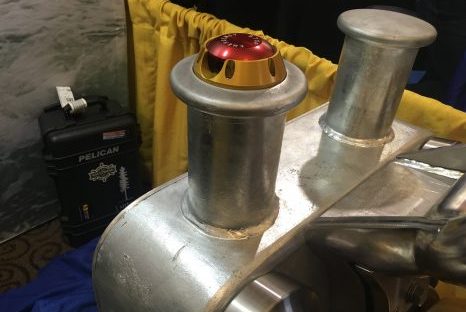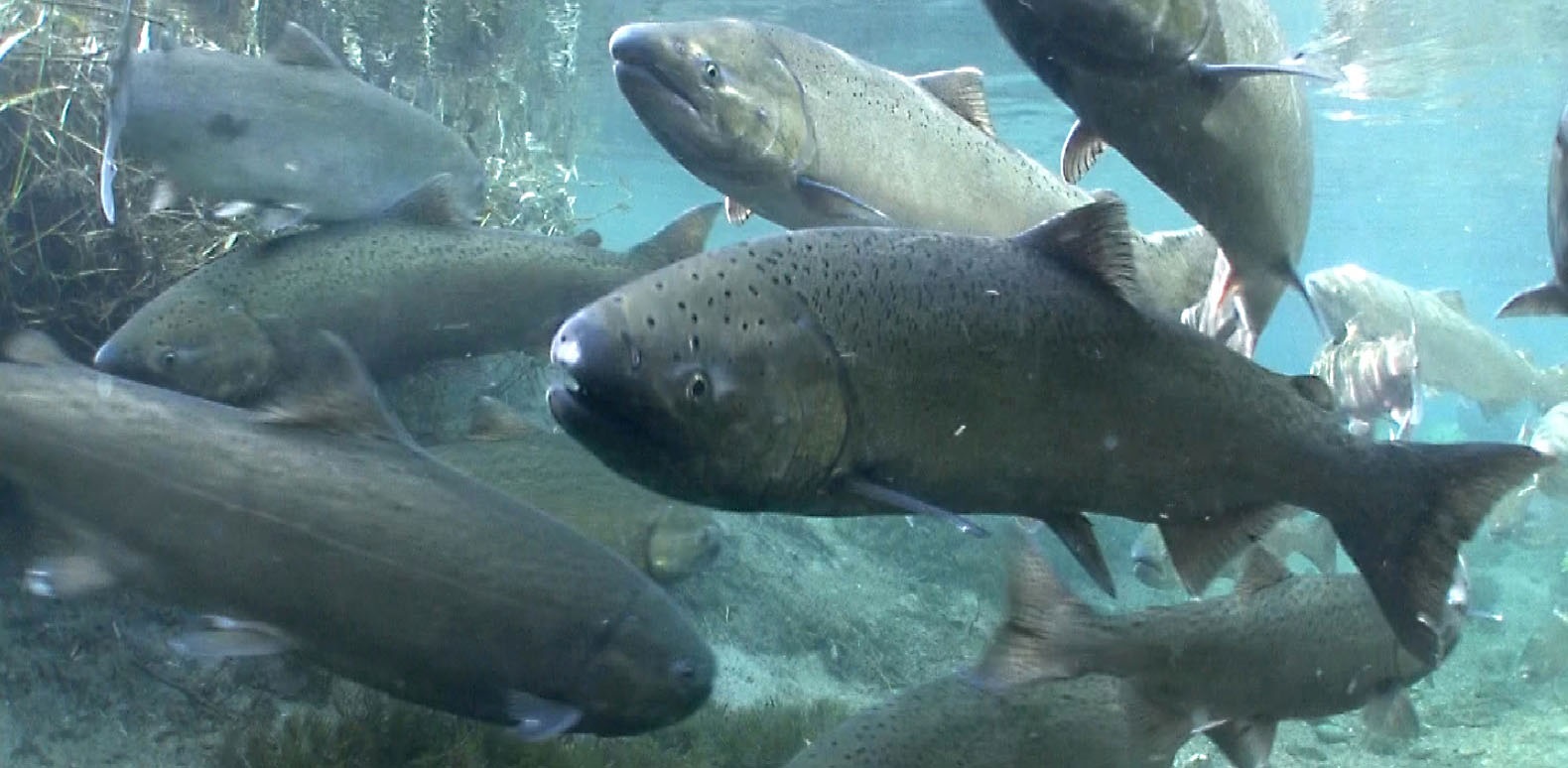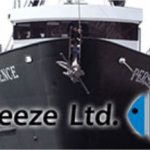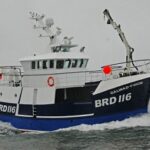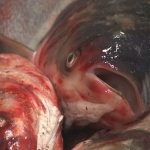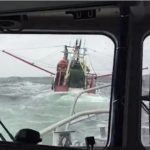Category Archives: Pacific
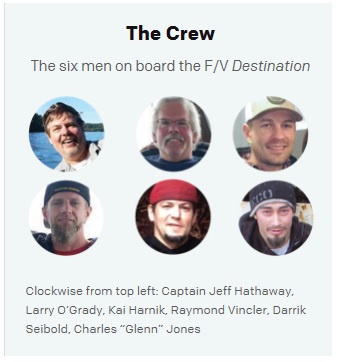
The Boat at the Bottom of the Sea
Captain William Prout was up early. Or was it late? During crabbing season it was sometimes hard to tell the difference. The day before, Friday, February 10, 2017, Prout and his crew had offloaded a batch of snow crab on the remote Bering Sea island of St. Paul. Then they’d turned the Silver Spray around and motored back out to the fishing grounds to collect their remaining crab pots. At 5am on Saturday, Prout pulled his anchor and pointed his bow southeast. Hours of darkness still remained—dawn came late on the Bering Sea in February. Captain Prout stayed in the wheelhouse, drinking coffee with his son and looking out at the icy night, as the Silver Spray churned along. >click to read<20:06

State of Washington v. United States: Supreme Court to tackle salmon case without Justice Kennedy
When the full Supreme Court resumes arguments in mid-April, the Court will be short by one Justice when it considers a long-running dispute about salmon fishing, Indian treaty rights, and culverts in the state of Washington. On March 19, the Clerk of the Supreme Court clerk Scott Harris told the parties in State of Washington v. United States that a routine check missed Justice Anthony Kennedy’s participation in an earlier judicial decision from 1985, when Kennedy was on the federal circuit bench, related to the current case. After learning about the situation, the court said Justice Kennedy declined to end his participation in the current case. With eight Justices on the bench for the April 18 arguments, Washington v. United States should get its fair share of attention. >click to read<
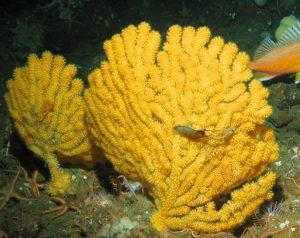
New fishery rules could protect deep sea corals in California
The Pacific Fishery Management Council will decide Monday what happens to the underwater areas as part of an update to essential fish habitat for West Coast groundfish. “The Pacific Fishery Management Council will be making a decision on changing the areas that are opened or closed to West Coast groundfish bottom trawling,” said Kerry Griffin, a staff officer to the council, which regulates fisheries in federal waters from the Mexican border to the Canadian border, from three miles to 200 miles off shore. The proposal, scheduled for a vote Monday, >click to read<20:31
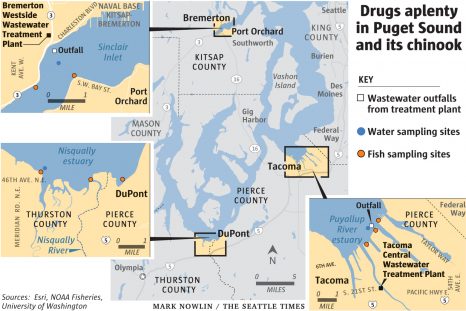
Puget Sound salmon do drugs, which may hurt their survival
Anti-depressants. Diabetes drugs. High-blood-pressure medication. Puget Sound chinook are doing our drugs, and it may be hurting them, new research shows. The metabolic disturbance evident in the fish from human drugs was severe enough that it may result not only in failure to thrive but early mortality and an inability to compete for food and habitat. The research built on earlier work, published in 2016, that showed juvenile Puget Sound chinook and Pacific staghorn sculpin are packing drugs including Prozac, Advil, Benadryl, and Lipitor among dozens of other drugs present in tainted wastewater discharge. >click to read<12:50
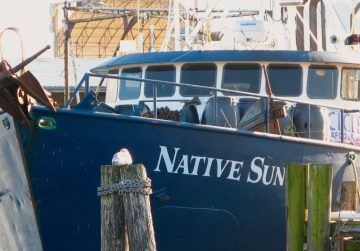
Ex-Fishing Boat Captain Guilty of Dumping Oily Waste Into Pacific
A former fishing boat captain is facing up to six years in prison for deliberately dumping oily slops into the Pacific Ocean. A jury in Seattle convicted Randall Fox on Thursday of violating the federal Act to Prevent Pollution from Ships. He also faces a $250,000 fine when he is sentenced.,, A Native Sun crewmember videotaped Fox dumping waste and turned the tape over to prosecutors.,, The Justice Department says Fox’s father, who had also been a captain of the Native Sun, was also convicted of a pollution-related crime last year. >click to read<09:01
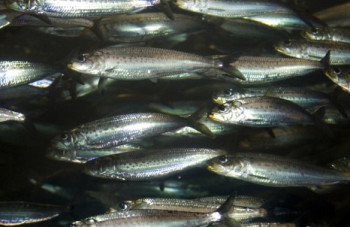
California Wetfish Producers Association: Sardine Fishery Collapse Latest Fake News
This Sunday, April 8, the Pacific Fishery Management Council is meeting in Portland to debate the fate of the West Coast sardine fishery, after the 2018 sardine stock assessment estimated the biomass has declined by 97 percent since 2006. According to the California Wetfish Producers Association, the only problem with that finding is it belies reality. “Fishermen are seeing more sardines, not less, especially in nearshore waters. And they’ve been seeing this population spike for several years now,” said Diane Pleschner-Steele, executive director of the California Wetfish Producers Association (CWPA). “This stock assessment was an update that was not allowed to include any new methods and was based primarily on a single acoustic survey,,, >click to read<21:15
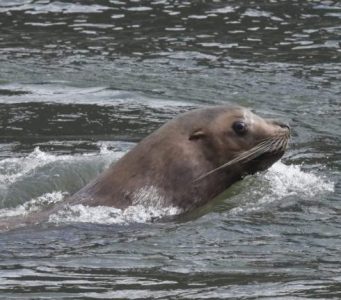
‘We’re losing’ sea lion fight – State, tribal, federal agencies back Herrera Beutler bill
The National Oceanic and Atmospheric Administration Fisheries division estimates about 45 percent of spring chinook salmon are lost between the mouth of the Columbia and Bonneville Dam, with sea lions being primarily responsible.,, For that reason, the Inter-Tribal Fish Commission is supporting legislation by Rep. Jaime Herrera Beutler, R-Battle Ground, and Kurt Schrader, D-Ore., titled the Endangered Salmon and Fisheries Predation Prevention Act. The bill would amend the Marine Mammal Protection Act of 1972 to make it easier for state and tribal wildlife managers to kill sea lions that predate salmon and steelhead and other fish in the Columbia River and its tributaries. >click to read<07:28
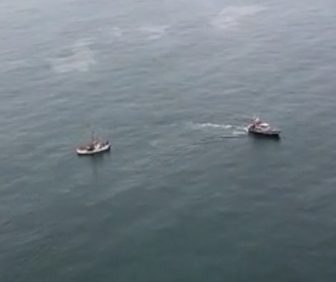
Coast Guard assists 3 fishermen following boat fire near Table Bluff
The Coast Guard aided three fishermen in distress after their 45-foot fishing vessel caught fire and was flooding near Table Bluff, Wednesday morning. A crew member of the commercial fishing vessel Advance called watchstanders at Coast Guard Sector Humboldt Bay via cell phone around 8:30 a.m., reporting an engine fire and flooding with three people on board. The caller said the crew was fighting the fire by dumping buckets of water into the engine compartment. >click to read<23:13
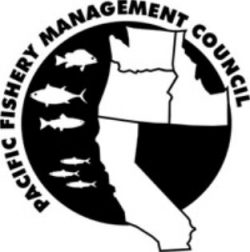
Pacific Fishery Management Council meeting in Portland, Oregon April 5-11
The Pacific Fishery Management Council and its advisory bodies will meet April 5-11, 2018 in Portland, Oregon. Meeting Notice With Detailed Agenda >click here< >click here<to listen to the Live Stream starting Friday, April 6, 2018 beginning at approximately 9:00 AM Pacific Time Enter the Webinar ID code : 530-089-227) PFMC link21:05
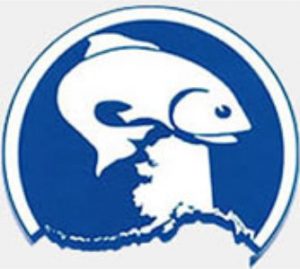
North Pacific Fishery Management Council Meeting in Anchorage April 2-10
The North Pacific Fishery Management Council will meet the week of April 2-10, 2018 at the Hilton Hotel, 500 W. 3rd Avenue, Anchorage, AK. The Agenda and Schedule are available as well as a list of review documents and their associated posting dates. Listen online >click here< while the meeting is in session. NPFMC link
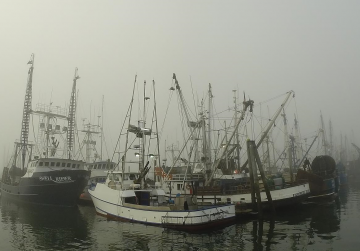
New study reveals cost of 2017 salmon fisheries closure
Last year’s closure of the commercial ocean salmon troll fishery off the West Coast is estimated to have cost $5.8 million to $8.9 million in lost income for fishermen, with the loss of 200 to 330 jobs, according to a new model that determines the cost of fisheries closures based on the choices fishermen make. Scientists hope the model, described for the first time this week in Marine Policy, will help policy makers anticipate the economic toll of fisheries closures. >click to read<15:40
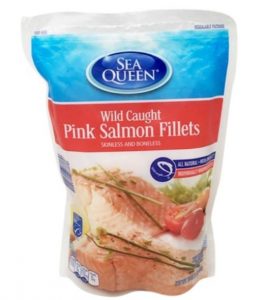
China’s fish
The national seafood media was Monday atwitter with speculation China might impose tariffs on American seafood, and Alaska Commissioner of Commerce Mike Navarre was trying to spin the state’s proposed liquified natural gas (LNG) project as some sort of shelter against a looming U.S.-China trade war. “For now, China appears to be leaving Alaska seafood alone,” added reporter Liz Raines. There was no “appears” about it.,, Why? Because China – sometimes with the help of North Korean serfs – has turned Alaska fish into a moneymaker for China. >click to read< 14:16
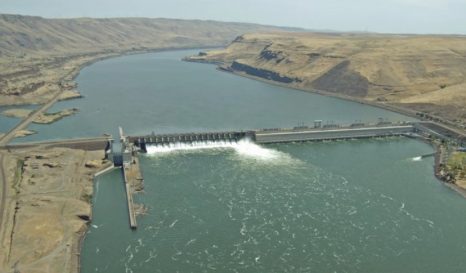
Appellate court orders more water over Columbia, Snake dams to aid fish
More water will flow over several federally operated Northwest dams beginning Tuesday, a day after conservationists and the state of Oregon won a court victory in the long-running battle over the plight of salmon and steelhead in the region. A panel of judges at the U.S. Court of Appeals for the Ninth Circuit affirmed a district court order to protect juvenile fish migrating downstream on the Columbia and Snake rivers by increasing spill at eight dams. This fight has been going on since 2000, when the National Wildlife Federation challenged the National Marine,,, >click to read<13:04

Sustainable Shark Fisheries and Trade Act of 2018 – bill nets solutions for overfishing
A new bipartisan bill introduced in U.S. Congress this month encourages a science-based approach to significantly reduce the overfishing and unsustainable trade of sharks, rays and skates around the world and prevent shark finning. The Sustainable Shark Fisheries and Trade Act of 2018 was introduced in the U.S. House of Representatives by Rep. Daniel Webster, R-FL, and Rep. Ted Lieu, D-CA, along with co-sponsors Rep. Bill Posey, R-FL, Rep. William Lacy Clay, D-MO, and Rep. Walter Jones, R-NC., >click to read<09:39
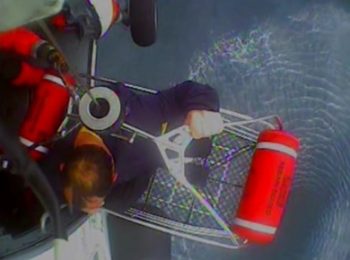
Coast Guard rescues four commercial fishermen 12 miles off Rockaway Beach, Ore.
A Coast Guard aircrew rescued four commercial fishermen after their 54-foot fishing vessel capsized off the coast of Rockaway Beach, Sunday evening. An MH-60 Jayhawk helicopter aircrew from Sector Columbia River hoisted the four fishermen to safety and transported them to the helicopter landing pad at Station Tillamook Bay where they were transferred to local emergency medical technicians for further care and evaluation. Command Center watchstanders at Sector Columbia River received a mayday call over VHF-FM channel 16 at 4:17 p.m. from the captain of the commercial fishing vessel MT Tamgas,,, >Video, click to read<23:49
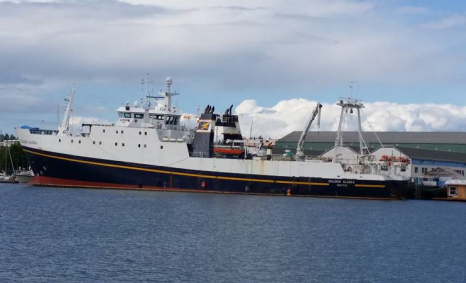
Third Medevac in Three Months for F/V Golden Alaska
On Thursday, a U.S. Coast Guard MH-65 helicopter from the cutter Stratton medevaced a 59-year-old crewmember from the factory trawler Golden Alaska about 35 nm northwest of Cold Bay, a small fishing port in the Aleutian Islands. The individual was reportedly suffering from inhalation of unknown chemicals. Weather on scene was favorable, with calm seas and light airs. The aircrew safely hoisted the man aboard from the Alaska’s bow and brought him to Cold Bay, where he was transferred onto a LifeMed aircraft ambulance and flown to Anchorage. >click to read<10:16
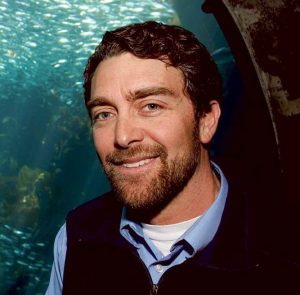
As the Pacific sardine population keeps dropping, the feds come under scrutiny
On April 8, the Pacific Fishery Management Council – a body of appointed officials that regulates fisheries off the West Coast – will be presented with the draft assessment of the sardine population from roughly southern California to Canada. The news it brings is neither good for fishermen nor the local marine ecosystem: The estimated number of sardines in July 2018 – which dictates policy for the 2018-19 fishing year – is 52,065 metric tons, an approximately 97-percent drop from 2006, the most recent peak. What is in dispute: the accuracy of the population assessment, and how we got here.>click to read<15:30

Fishing Vessel Sees Large Fuel Savings
The 305-foot factory trawler f/v Golden Alaska is powered by twin MAK six-cylinder engines and has a large boiler used to support large fishmeal-fish oil processor and hoteling galley needs of the 130-person crew and factory personnel. The vessel is in its fourth year and eighth pollock season using the Fitch Fuel Catalyst on output of dual centrifuges for a 5,300-gallon day tank. They get approximately 18 months service from each core and now are on their third one. >click to read< 21:58
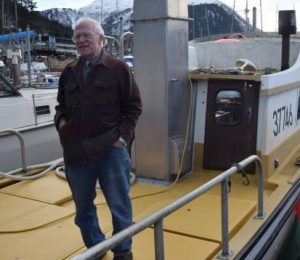
Seals and sulking salmon are causing a data problem for Fish & Game
The Alaska Department of Fish and Game has a numbers problem. A statistical bias in the department’s data on the Taku River — conducted via a “mark-recapture” system for decades — means it has been overestimating how many Chinook and sockeye salmon make it up the river to spawn by about 30-40 percent. The statistical bias is now being corrected by new state-of-the-art studies, Fish and Game says, and much of the issue can be chalked up to seal predation. It also doesn’t mean either of the stocks are any worse off than they have been, ADFG says. But fishermen aren’t buying it. >click to read<13:52
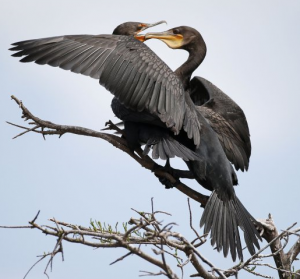
Corps of Engineers wants to remove 500 cormorant eggs to support salmon conservation in Columbia River
The Corps is in the fourth year of a five-year plan to cut the cormorant population on East Sand Island at the river’s mouth from more than 14,000 breeding pairs to no more than 5,380 to 5,939 birds to reduce pressure on fish listed under the federal Endangered Species Act. Double-crested cormorants are not listed under the federal Endangered Species Act but have federal protections under the Migratory Bird Treaty Act. The colony on the island at one point was believed to account for more than 40 percent of the entire Western population of the double,, >click to read<18:45
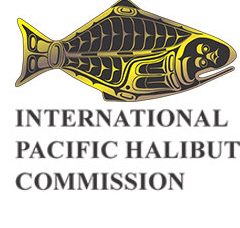
IPHC commissioners hope to find middle ground on catch limits
In January, disagreements on the International Pacific Halibut Commission came to a head. U.S. and Canadian commissioners are in agreement on one thing, halibut stocks are on the decline. But when it came to divvying up the catch between U.S. and Canadian waters, commissioners were at an impasse. The fundamental disagreement comes down to whether halibut should be allocated solely based on the science or if social and economic considerations should also play a role. Next month commissioners will begin that conversation. >click to read<11:54
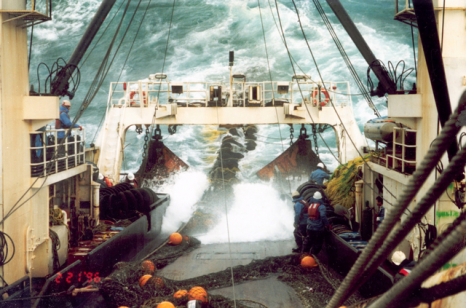
‘The truth needed to come out’: A decade after the sinking of the Alaska Ranger, a survivor changes his story
On the 10th anniversary of the sinking of the Seattle-based fishing vessel, a survivor and key witness says he left out part of the story — an incident he believes had grave consequences. Rodney Lundy has a story to tell. He says he should have told it a lot sooner. As the Seattle-based Alaska Ranger prepared to head out to the Bering Sea to fish for Atka mackerel, Lundy, an assistant engineer, says he saw trouble. It was the evening of March 21, 2008, and Lundy says crew had stacked bundles of netting around one of two air vents.,, Lundy wanted the gear moved. The conversation grew heated as fishmaster Satoshi Konno — leader of a small group of Japanese crew members — refused. >click to read<14:07
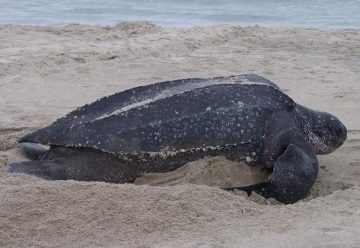
Petition to Reclassify: Fight begins over fate of leatherback sea turtle
Protected as endangered species for nearly half a century, their Atlantic population soon may lose that status, in what is becoming a fight between commercial fishermen and conservationists. The Blue Water Fishermen’s Association, which represents longline fishermen who catch swordfish, tuna and other big fish along the east coast, has petitioned the federal government to reclassify from endangered to threatened the northwest Atlantic population of leatherbacks,,, With the Pacific leatherback population crashing, they say the northwest Atlantic population should be classified separately so U.S. fishermen aren’t penalized for the failure of other countries to protect them. >click to read<09:36
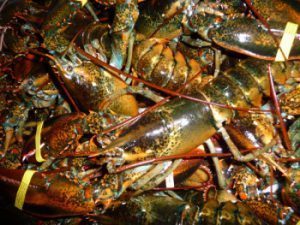
Partnership expected to create Live Stor America with holding facilities in Portland, Seattle
Live Stor Ltd. of North Sydney has reached an agreement with Tennessee-based LIG Assets to establish two live lobster holding facilities in the U.S. The new facilities would be based in Portland, Me. and Seattle, Wash. Under the name, Live Stor America, a million-pound live holding system operation in both cities would support import and export of live seafood from the U.S., Europe and Asia. “LIGA is very fortunate to partner with Live Ship, a company that is certain to disrupt the seafood delivery industry and shares our corporate values,” LIG Assets chairman Aric Simons said in a release issued earlier this month.>click to read<21:09

US Commerce Secretary Wilbur Ross questions safety of seafood imports
U.S. Commerce Secretary Wilbur Ross addressed U.S. fisheries regulations and his concern about the quality of seafood imports with the U.S. Congress on Tuesday, 20 March, and he said he’s looking for NOAA Fisheries officials to work harder to reduce the country’s seafood trade deficit.,, “It’s one of my pet peeves,” Ross said, when asked by U.S. Rep. Steven Palazzo (R-Mississippi) what he planned to do to reduce the country’s seafood trade deficit. “I hate the idea that with all the water surrounding us and all the water inland that we have a trade deficit in fish. >click to read<13:05
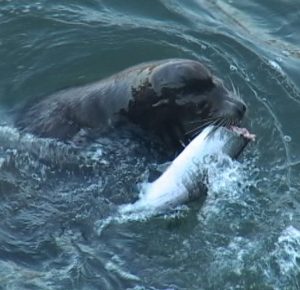
More seals, sea lions endangering orcas
Re: “Ottawa spending millions to help endangered orcas” and “Washington state moves to protect endangered southern residents,” March 16. These articles failed to address a couple of noteworthy things regarding prey availability for resident orcas, more resources for local salmon enhancement being one of them. The southern resident orcas are facing increased competition for salmon in large part due to the increase in harbour seal and California sea lion populations since the enactment of the Marine Mammal Protection Act in 1972. >click to read<17:00
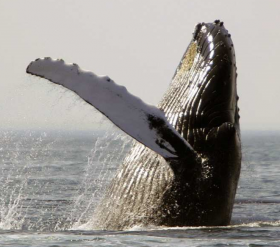
Whales and fishermen caught in turf war over California’s coast
As rising ocean temperatures move their food supplies closer to shore, a staggering number of migrating whales have been forced into the path of California’s crab fishing fleet — and the confrontations have increased dramatically over the last five years. State agencies have tried and failed to keep whales out of crab gear, prompting one nonprofit to take matters into its own hands.,, Some fishermen see this lawsuit as another nail in the coffin for California’s Dungeness crab fishery. >click to read< 09:20






